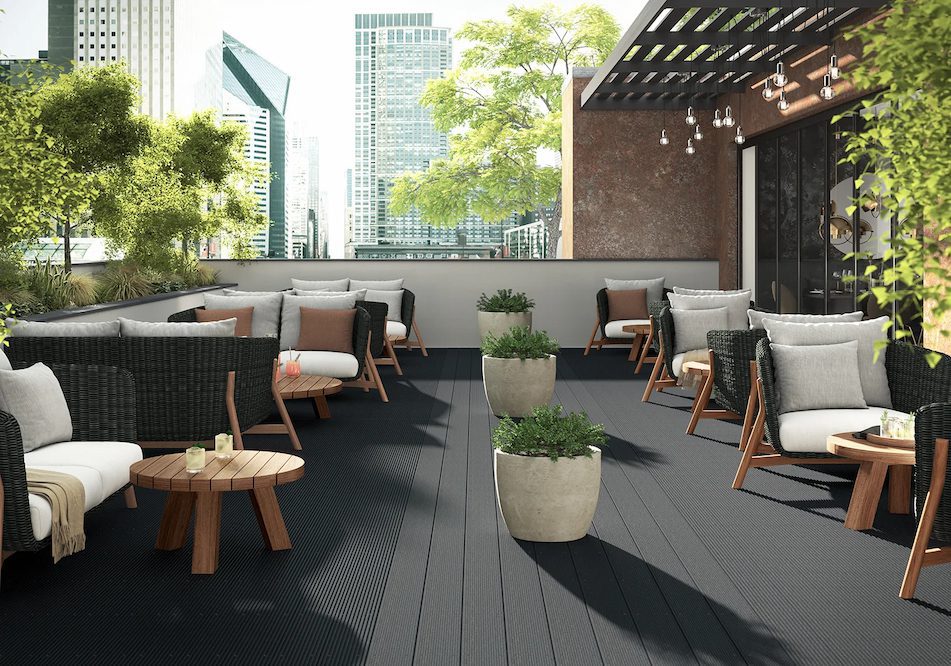Composite decking and PVC decking are two popular alternatives to timber. However, choosing between the two can be a tough decision. In this blog we aim to clarify their differences and the advantages of each.
What is PVC decking?
PVC decking is made from polyvinyl chloride (a type of plastic) and does not contain any organic materials. It is 100% plastic.
What are the advantages of PVC decking?
There are many benefits to PVC decking:
- PVC decking is virtually maintenance-free and only needs an occasional clean to keep it looking its best. This means you can spend more time enjoying your decking rather than maintaining it.
- PVC decking will not rot or splinter.
- PVC decking does not require any treatments or paints which may be harmful to the environment.
- PVC decking is a more economical decking option and is often used on caravans and holiday homes.
- PVC decking is a lighter weight board than timber or wood composite.
What are the disadvantages of PVC decking?
- PVC deck boards do not have the durability or lifespan of a quality composite counterpart.
- PVC decking can be criticised as an non environmentally-friendly option. However some manufacturers (like our sister company DekBoard) make their boards from recycled plastic and at the end of their life the boards are also fully recyclable, making them a much more eco-friendly choice than some believe.
What is composite decking?
Wood composite material is a combination of wood fibres, recycled plastics, and bonding agents. These materials are heated together, formed into boards, and then cooled. The result is a high quality, long-lasting composite board, which has all the beauty of timber but the practicalities of PVC and more.
What are the advantages of composite decking
Composite decking has many of the same benefits of PVC decking:
- Composite decking does not require any treatments to protect it from the elements or paints to make it more attractive.
- Composite decking is slip resistant and splinter free, making it safe and comfortable underfoot in any weather.
- Composite decking is rot and split resistant, so it keeps its integrity and appearance a lot longer than alternative materials.
In addition, it has further advantages over PVC:
- It’s extremely long lasting and often comes with an extended warranty, for example Ecodek’s decking ranges are supplied with up to 25 year warranties.
- It can also be extremely sustainable. For example, here at Ecodek our composite decking boards are made from 95% sustainably-sourced and recycled materials, and are recyclable at the end of their lives.
- It has better slip resistance.
It’s not just decking boards that can be made from wood composite. The substructure can also be constructed from the same material. This means that, unlike a softwood frame which may rot within a few years, your substructure will be just as strong and long lasting as your boards.
Which type of decking is better?
We may be biased, but we believe composite decking is the best choice for your next decking project. It has all the benefits of PVC decking, but with the beauty of real timber. It’s also extremely durable, providing you with peace of mind that you’ve got a decking solution that has been built to last.
For further information about the many benefits composite decking has to offer, call our knowledgeable, friendly team today on 01978 667 840.
